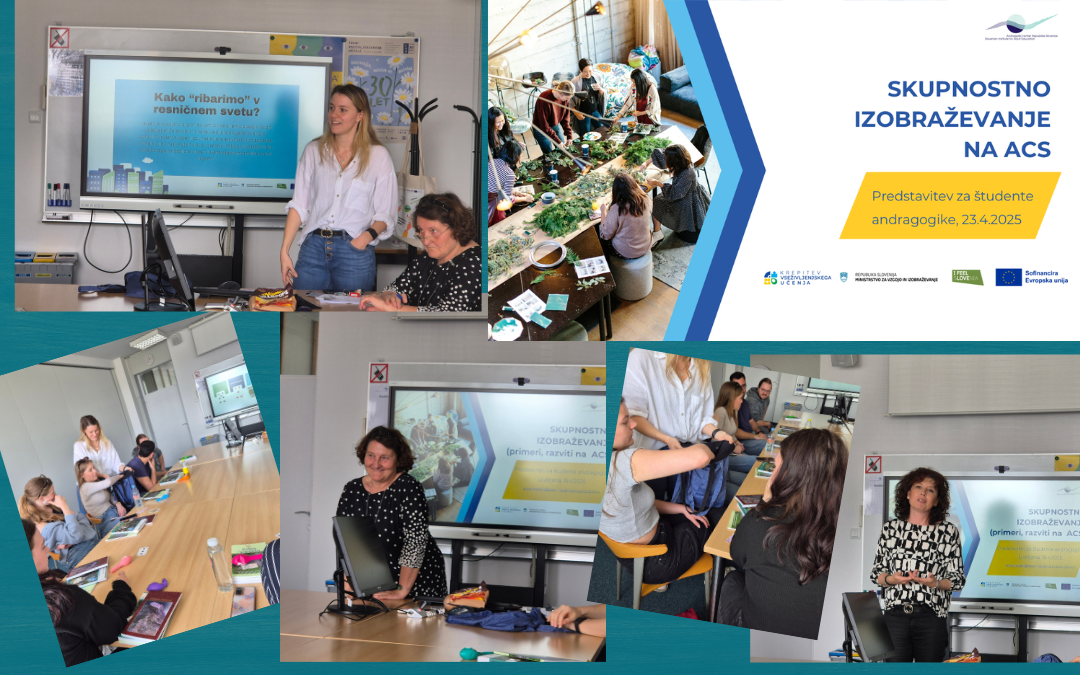The students then explored the practical aspects of implementing community education in a relaxed and interactive atmosphere. Ema Meden first engaged them with an educational game that led directly into the concept of the tragedy of the commons – a framework often used to understand environmental challenges. Serious games, as they are known, enable participants to experience complex situations more comprehensively and holistically. Building on this, Dr Nevenka Bogataj invited the students to reflect on and define concepts such as common resources, community, collective action and, importantly, community education and citizen science. She interwove these themes with the role of relationships that are realised through decision-making, agreement and dialogue. As an outstanding example of community learning in the Slovenian context, she highlighted study circles. For more than 30 years, these have served as a model of collective action that is both local and educational.
The community restrains those who would stand out from the average – whether positively or negatively … the community creates balance. Within a community, we correct one another.
At the core of the session, critical thinking emerged – a skill both lecturers skilfully encouraged throughout. The students’ motivation for selecting community education as an elective was particularly encouraging: they perceived it as a counterbalance to the growing individualisation of modern society and the decline in the strength of community values.
The session provided students with a deeper insight into the complexity and potential of community education, equipping them with reflections to carry into their future work in the field. We look forward to further collaboration with these young professionals and wholeheartedly support their contribution to the development of community education in Slovenia.
Erika Švara (erika.svara@acs.si), SIAE

